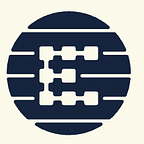Benchmarking near-term quantum optimisation
by the Entropica Labs Team
Today we are very pleased to announce the results of a collaboration between Honeywell, the BMW Group’s IT Tech office in Singapore, and Entropica Labs. We developed and ran a benchmark for near-term quantum optimisation on Honeywell’s H1 hardware, a 10-qubit trapped-ion quantum computer.
Specifically, we used the Recursive Quantum Approximate Optimization Algorithm (R-QAOA) to tackle number partitioning, a classic combinatorial problem that is an entry point to numerous logistics and supply chain problems of industrial interest.
The x-axis variable is the problem size in the figure below, while the y-axis variable measures the performance. The smaller the ‘set difference’, the better; the exact brute force solutions are shown in yellow. Honeywell’s H1 device's performance is seen to be competitive with a simulated quantum computer incorporating only shot noise resulting from the finite number of measurements. For the small problem instances studied on the algorithmic side, the depth-1 R-QAOA has a comparable performance to the classical Karmarkar-Karp (KK) heuristic.
Moving forward, we plan to run larger and more complex instances of this problem on the increasingly better quantum devices we expect to see in the coming months and years. One specific goal is to explore whether higher-depth versions of R-QAOA can outperform the KK algorithm.
We emphasise that this is a continuous process, which reflects two core working principles of Entropica.
The first is to take a hardware-driven approach — we use real quantum computers as much as possible. For customers, this means we will try to reduce and simplify their real-world problem statements to something amenable to implementation on today’s hardware. As quantum computers get better, we can add back more of the original problem’s complexity. This enables us to benchmark the hardware of the day with a correspondingly complex problem, to understand if and when we might reach a possible quantum advantage. This way, our partners can follow how the technology progresses in an informative, engaging, and — we believe — more actionable way.
The second is to take classical algorithms seriously. It goes without saying that if the end goal is quantum advantage, we better thoroughly compare quantum approaches' performance with their classical alternatives. Moreover, this approach can often turn up improved classical solutions that can be deployed by customers today.
We think we are still some years away from quantum advantage for real-world supply chain and logistics problems, primarily because it will take time for the hardware to mature to the required level. Our current efforts in use-case exploration and problem translation aim to determine which problems show the most promise for quantum advantage, and how we would optimally achieve this in practice.
At the same time, we believe quantum optimisation approaches promise to overcome some of the limitations classical computers face when dealing with highly complex systems. Domains such as logistics, supply chain and manufacturing offer a plethora of problems that could greatly benefit from quantum computing.
Projects such as our collaboration with the BMW Group and Honeywell are certainly forward-looking. But with new and disruptive technologies such as quantum computing, it is paramount to be well prepared for what lies ahead.
